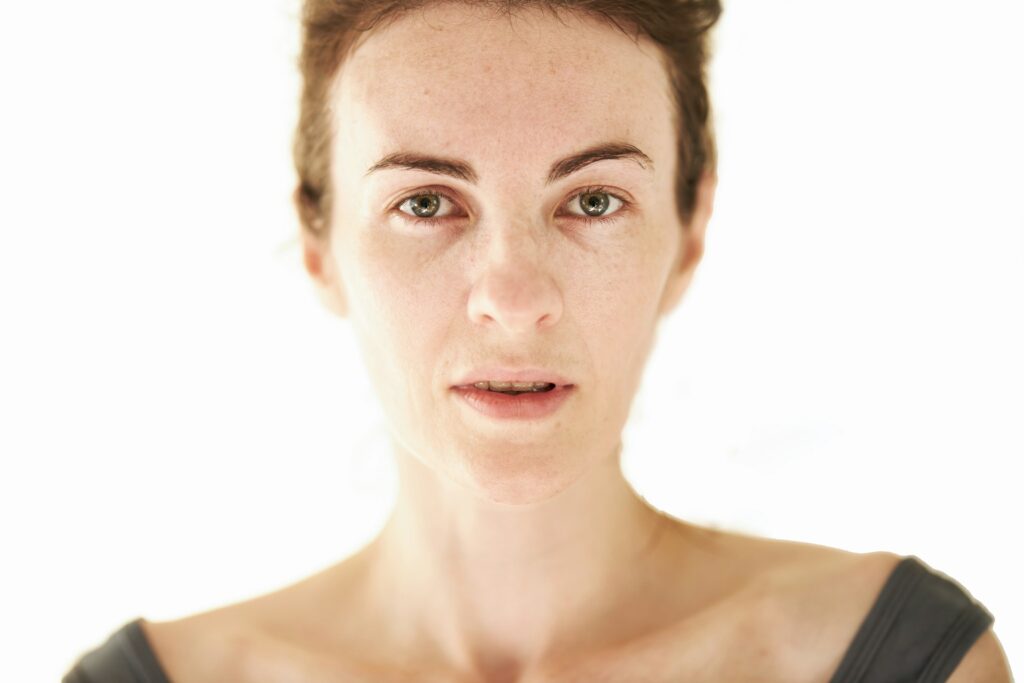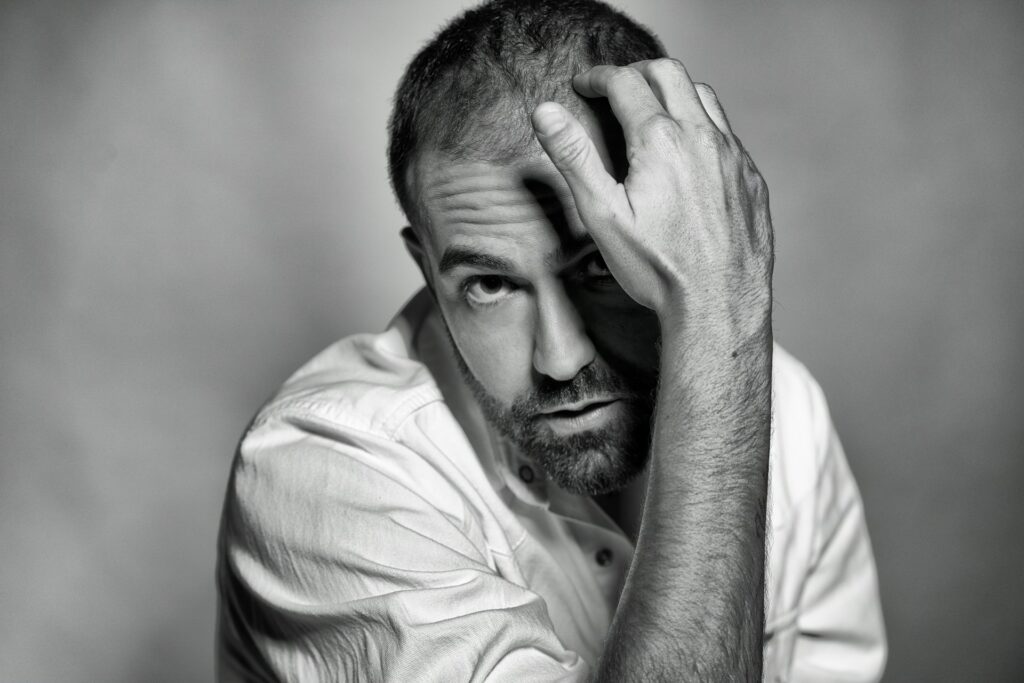Have you ever seen those heart-wrenching moments in movies or in real life when someone breaks down in tears, and wondered why that never really happens to you?

Or, maybe you’ve felt like there’s something wrong because crying doesn’t come naturally, and it seems like everyone else is so in touch with their emotions. Of course, just because crying isn’t your go-to response doesn’t mean you’re any less emotionally aware or valid. It simply means that you express your emotions differently. There’s no “right” way to feel, process, or show your feelings, so it’s time to stop being so hard on yourself.
Crying is just one way to express emotions.

We live in a world that often equates emotions with tears. We’ve all been told to “let it out” or “don’t bottle things up” when we’re feeling down. But here’s the thing: crying isn’t the only way to process your emotions. Some people express their feelings through talking, journaling, exercising, or just sitting with their emotions quietly. There are tons of ways to release what’s inside that don’t involve tears, and all of them are just as valid. Just because your emotions don’t come out in the form of tears doesn’t mean you’re not feeling deeply or processing your emotions effectively. Everyone has their own way of handling things, and it’s totally okay if that doesn’t involve crying.
It doesn’t mean you’re heartless.

If you’re not a crier, you might sometimes wonder if people think you’re heartless or unfeeling. But that couldn’t be further from the truth. Some of the most emotionally attuned people I know hardly ever cry. Just because you don’t cry in emotional situations doesn’t mean you don’t care deeply. You might process things internally or express your empathy and compassion in other ways. Maybe you’re the kind of person who’s always there for other people, offering a listening ear or practical support. Or maybe you channel your emotions into action. Not crying doesn’t mean you’re disconnected from your emotions; it just means you might express them differently.
Crying isn’t always the most effective release.

It’s a well-known fact that crying can feel incredibly cathartic for some people, but it’s not the magic cure-all that it’s often made out to be. For some, crying helps release pent-up tension and emotions. But for others, it can feel overwhelming or even unhelpful. If you’re someone who doesn’t naturally cry, it could be because your body has found other ways to manage stress and process emotions. Maybe you need to walk away and have some space, or maybe you need to talk it out. Everyone has their own method for coping, and if crying isn’t your go-to, that’s okay. The key is finding what works for you.
You don’t have to force yourself to cry.

One of the most frustrating things about the “cry it out” culture is the pressure it puts on people to cry when they’re just not ready or able to. Maybe you’ve been in a situation where everyone around you is sobbing, and you’re standing there feeling like there’s something wrong with you because you can’t bring yourself to cry. But here’s the thing—forcing yourself to cry isn’t helpful, and it certainly won’t make you feel better. Emotions take time to process, and trying to rush the process can just make it worse. If you don’t feel like crying, don’t. Your emotions will find their own way out when the time is right. You don’t have to meet someone else’s expectations of how you should feel.
You don’t need to apologise for how you process emotions.

In a world where we’re constantly being told how we “should” feel, it can be hard to avoid second-guessing your natural emotional responses. But just like you don’t have to apologise for being happy, you also don’t need to apologise for not crying. Your emotional processing style is part of who you are, and it doesn’t need to look like anyone else’s. If you don’t cry, it’s not something you need to justify or apologise for. Your emotional health is just as valid as anyone else’s, and it’s okay if it doesn’t manifest in tears.
Crying can be a sign of emotional overwhelm, not strength.

In some cultures, there’s a common belief that crying is a sign of weakness or vulnerability. But the truth is, it’s actually a sign of emotional overwhelm. When we cry, it’s often because we’re at our limit, and our body needs to release those pent-up emotions. While crying can feel like a release, it doesn’t necessarily mean that someone who doesn’t cry is “bottling it up” or struggling more than someone who does. People who don’t cry might be managing their emotions in a way that feels more controlled or intentional for them. It’s not about strength or weakness; it’s about how you handle and process your feelings in a way that works for you.
You can still be emotionally available without crying.

There’s this idea that in order to be emotionally available to other people, you need to show emotions in a visible way, like crying. But you can be just as emotionally present for someone without shedding tears. Being emotionally available is about showing up for people, listening to them, and being there when they need you. If crying isn’t how you connect with other people, you might find that showing up with empathy and offering support in other ways is just as meaningful. You don’t have to cry to be a supportive and caring friend, partner, or family member.
Not crying doesn’t mean you’re not feeling.

It’s important to remember that just because tears aren’t coming doesn’t mean emotions aren’t running deep. You might feel overwhelmed, frustrated, sad, or anxious, but it doesn’t always come out in tears. You could be processing everything internally, or you might express your emotions through other outlets like creative projects, physical activity, or quiet reflection. Just because your emotions don’t show up in the form of tears doesn’t mean you’re less emotionally aware or that you’re suppressing things. You’re still feeling everything, just in a different way.
Everyone’s emotional landscape is unique.

One of the most freeing things to recognise is that everyone processes emotions differently. Some people cry at the drop of a hat, while others feel everything but don’t express it through tears. It doesn’t make one person’s emotional experience more valid than the other’s. There’s no one-size-fits-all when it comes to how we express our feelings. The key is learning to accept your emotional landscape and recognising that you don’t need to follow anyone else’s script to be emotionally valid. If crying isn’t how you express yourself, that’s okay—you’re still emotionally connected and capable of processing your feelings in your own way.


